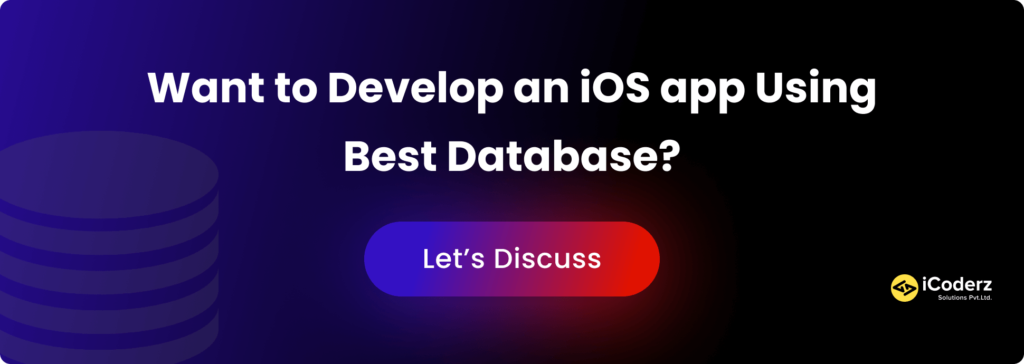Table of Contents
Introduction
It’s not very often you find a business without competition. The modern app and the Apple App Store are something that plenty of people enjoy. In 2008, there were 500 apps in the marketplace, which was huge for quite a few users.
In 2008, Apple’s App Store had over 267 thousand apps. That’s a lot of competition for your mobile business. With that being said, there are many benefits to mobile apps in today’s world. There were nearly 194 billion downloads in 2018 alone. That’s a lot of downloads and opportunities for your app!
When you Develop a Swift Application, essential decisions come down to the frameworks and tools you use. You’ve probably heard of programming languages like Swift or Objective-C, but database choices rarely get enough spotlight.
Although creating an app that is attractive and fun to use is important, databases are just as important. This is because databases hold all the information necessary for your app to provide a truly interactive experience for your users.
Is there the best databases for iPhone App Development? You won’t have to wait long to find out.
When it comes to databases for iOS apps, there are a few different options to choose from. However, not all databases are created equal. So, which one is the best?
The Most popular Databases for iOS Apps is SQLite. It’s open-source, lightweight, and easy to use. Plus, it integrates well with Swift App Development. Another option is Realm, which is also open-source and easy to use. However, it’s not as lightweight as SQLite and doesn’t have as many features.
So, which database is the best for iOS apps? It depends on your needs. If you need a lightweight database that’s easy to use, then SQLite is a good option. If you need a more feature-rich database, then Realm might be a better choice.
What is a Database?
A database is a specially designed software program that can store and retrieve data efficiently. Originally, databases were only written for one type of external machine or host computer, but nowadays they are written to work on any type of machine.
Databases are a collection of data that typically includes scripts, programs, and files. It’s what makes any digital tool work.
Traditional databases typically use tables, rows, and columns to organize data, but these are becoming less common in newer applications like Maps.
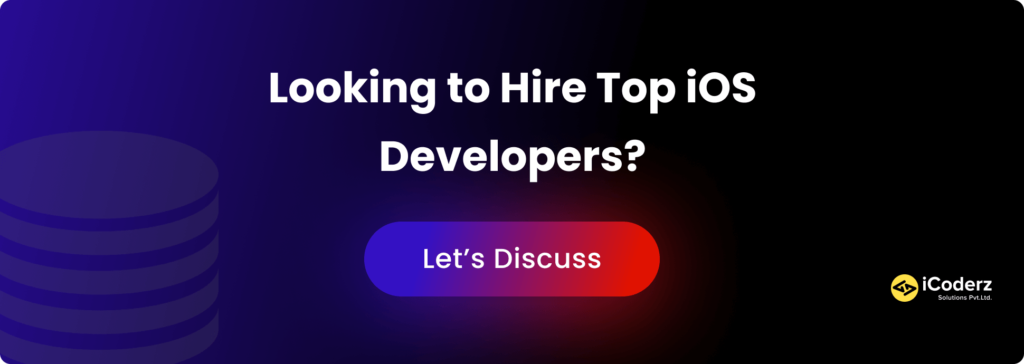
Mobile apps also take input from databases. They don’t just need them to run programs, but they also rely on them to limit user input.
Mobile apps are data intensive. Saving, filtering, loading, and searching your app’s data manipulates the data and is critical for a functional app.
Selecting the best database for an iOS app is a major decision that could help make or break the success of your app. Selecting the right one can greatly affect how well your app functions.
Why Do You Need a Database for iOS?
There are many reasons why you might need a database for your iOS app. If you’re developing an app that will be used by a large number of people, then you’ll need a way to store all of their data. A database will also be necessary if you want to create a complex app with many features.
Another reason to use a database is to keep your data organized. If you have a lot of information to keep track of, then it can be difficult to do so without a central place to store it all. A database will allow you to easily organize and access your data.
Finally, using a database can help improve the performance of your app. Apps that rely on databases can run faster and more efficiently than those that don’t. This is because databases can provide quick access to the data they contain.
If you’re developing an iOS app, then chances are good that you’ll need a database. There are many different types of databases available, so it’s important to choose one that’s right for your app.
Best Databases for iOS App
There are many different types of databases, and each has its advantages and disadvantages. The best database for iOS apps depends on the specific needs of the app.
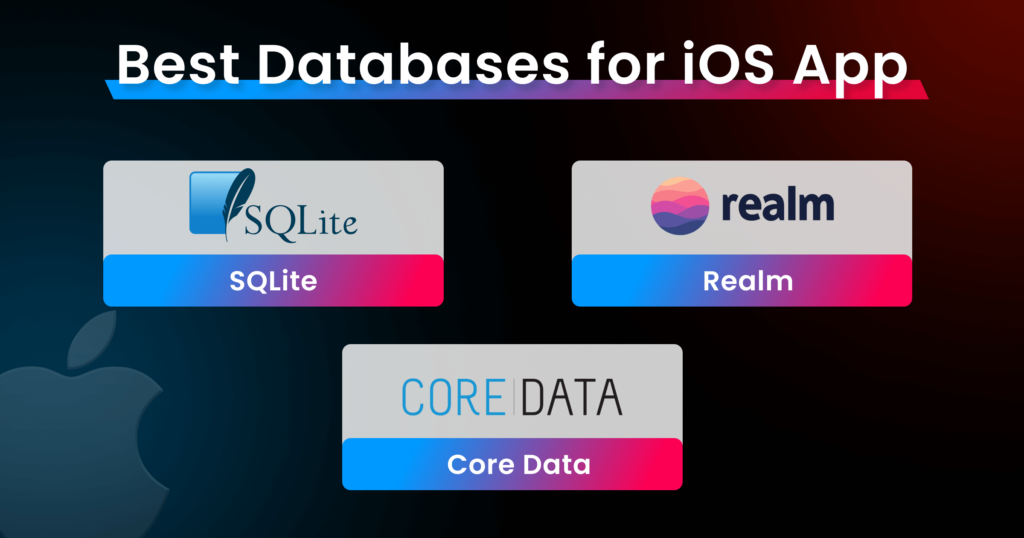
Some of the most popular databases for iOS apps include SQLite, MySQL, and PostgreSQL. Each of these has its strengths and weaknesses, so it’s important to choose the right one for your app.
SQLite is a lightweight database that is easy to set up and use. It’s perfect for small apps that don’t need a lot of data storage. However, it doesn’t scale well to larger apps.
MySQL is a more powerful database that can handle more data. It’s a good choice for larger apps that need to store a lot of data. However, it can be more difficult to set up and use than SQLite.
PostgreSQL is a powerful database that offers many features not found in other databases. It’s perfect for large-scale apps that need to store a lot of data and provide complex features. However, it can be more difficult to set up and use than MySQL or SQLite.
To choose the best database for iOS app, you have to know what’s available. Here are some of the best iPhone Mobile App Databases to look into.
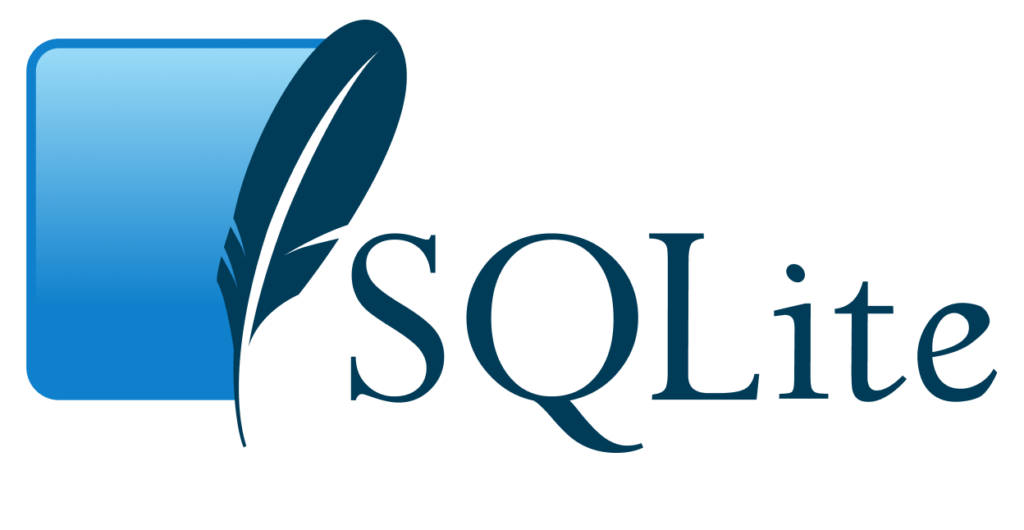
SQLite is a relational database management system.
SQLite is the most used database engine in the world, and it defines itself as a relational database management system (RDBMS). This type of database often stores information in tables, rather than flat files or a hierarchical system.
Android SQLite can be integrated into your app as an additional service, or run as a separate service in the background. The database is lightweight and modular.
We’ve looked at some of the top database engines and why we’re using SQLite.
One of the reasons why some developers choose to use SQLite is that it’s easy to implement. There are many benefits to using this database, such as its automatic syncing and encryption.
It’s easy to use, has lightweight integration with mobile phones and digital cameras, makes installation a breeze, and the configuration is simple. You’ll see for yourself when you try it out.
SQLite is a database engine available on all major platforms, such as Windows, OSX, and Linux. It can bind to a variety of languages, including C++, C#, JavaScript, Objective-C, PHP, Ruby, Java, and Python.
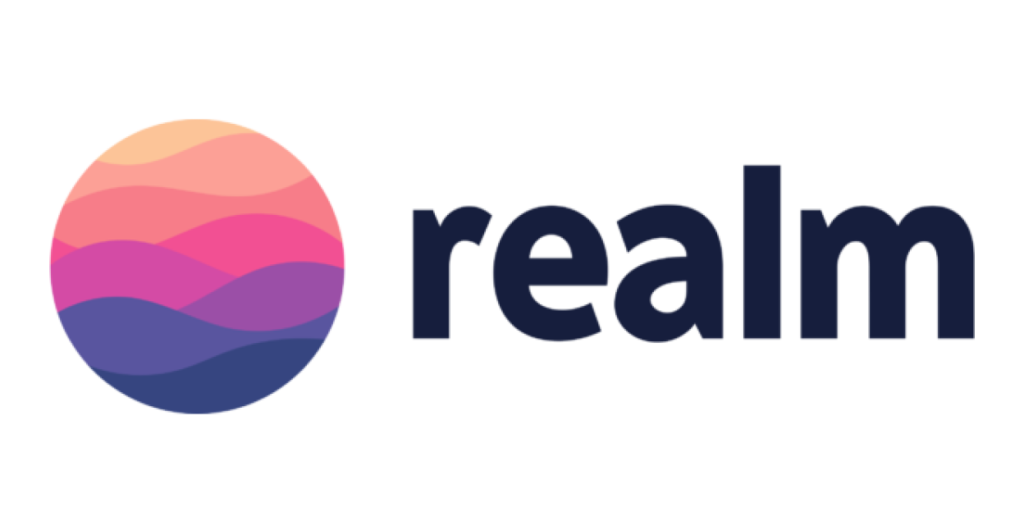
Realm is an open-source database management system that operates with real objects.
Essentially, Realm is a database that works with object-oriented programming. Unlike SQLite which runs on SQL, Realm is C++-based.
Realm is a relatively new database for iOS apps, but it’s already a strong competitor for the top spot. It was specifically designed to work with mobile operating systems like Android App Development and iOS as well as Xamarin and React Native.
Realm is an innovative social platform that makes blogging, publishing, and archiving on Web Development as easy as Pushing a Button.
The great thing about Realm is its modernity. Alongside an easy installation, Realm is faster than other databases like SQLite or Core Data.
Realm can easily scale to meet the needs of a large number of users while also supporting a significant amount of data. That is why Realm is such a valuable option for any database.
Developers can find Realm’s documentation clear and well-written, which makes it easy to access the information they need. This is perfect for developing apps quickly.
There are also support networks across social media, Github, and StackOverflow.
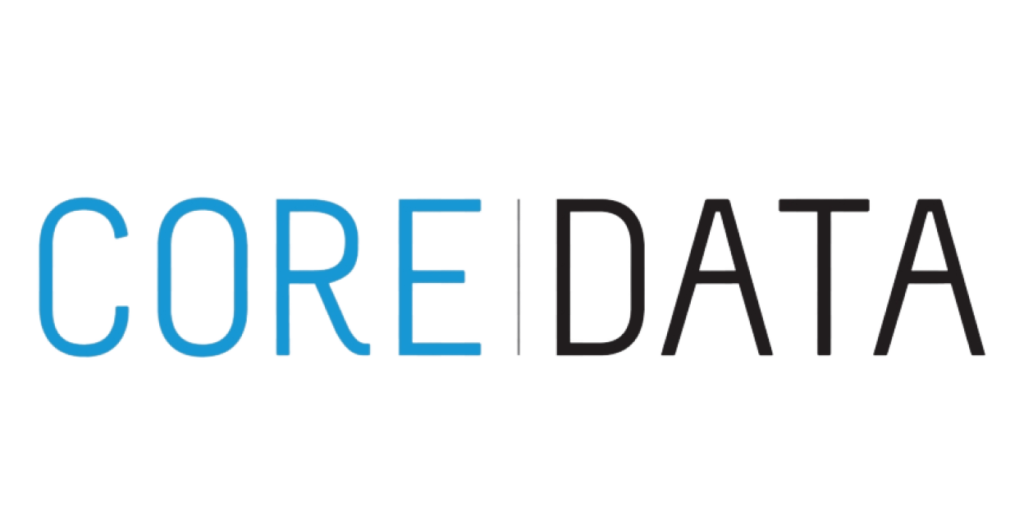
Core Data as a framework is sponsored by Apple itself.
Core Data is an Apple framework that can be used to save permanent app data for offline use, cache temporary app data, and define data types and relationships.
Core Data technically isn’t a database, but it does have the capability of using SQLite to store data.
A persistence framework is a type of middleware that stores data in a database. You’ll usually hear them called an “abstraction layer” because they exist as a series of steps between an application and its data stored in the database.
Core Data is a professional data cleaning and data conversion company that offers a broad range of services. Core Data can remove errors from data files, convert file formats with accuracy, merge tables, and more.
Core Data’s close relationship with Apple gives it the edge over other iOS databases when dealing with Apple-specific languages like Swift and Objective-C. It also has some features that make it a great database for your apps, such as in-app data inspection.
Core Data is the fastest and most comprehensive data storage in the iOS ecosystem. In addition to being faster, Core Data privileges simplicity for developers. This reduces the amount of code they need to write by up to 70%.
There are three main databases: binary, XML, and SQLite. Ultimately, it will be easier for software engineers to develop if they know one language instead of multiple languages.
Which Database Would Work Best with an iOS App?
When choosing the best database, there are a few characteristics to consider. During your selection process, you should take into account speed, size, and scalability.
Speed is a huge factor for today’s internet consumers. A speedier system will allow you to retrieve and manipulate data quickly.
Building a database will take some time, but the result is worth it. It’ll help provide better functionality to your users with high performance.
A database’s performance is based on its scalability. To maintain a scalable database, it needs to be both performant and fast for data input and output.
There is some distinction between write-heavy and read-heavy database solutions. And you should consider this difference when choosing a database solution.
If you hope to grow and succeed in the market, then you’ll need a database that can handle your expansion. More users mean more data to store, which can be overwhelming.
Are you Looking for Database Developers for your iOS App?
There are many different databases for iOS, and each one is designed for a specific purpose. What you need to consider when picking out a database is the speed, size, and Scalability of the iOS Database. You need someone with the same vision as you to carry your company into the future. This person will be behind any Unique Mobile App Ideas; it’s not just the developer. If you go in blindly, you’ll end up choosing the wrong type of database and have to come back to this decision later on down the line. Think about what you need before choosing which type of database is right for you.
If you don’t care too much about speed and scalability, you might be in the market for an SQLite database to store your data. If you’re looking for more in-built features, Core Data is your best option. But if it’s a speed that matters most to you, you should go with Realm.
Finding the Best iOS Developers for Hire is critical to success, and it’s important to take your time to find the right person for the job. We have a ton of experience and guidance on locating top talent. Plus, we’re always here to help if you have any questions!
Are you looking to Hire Developers for your project? But you don’t have an Idea Which one to Hire in 2023 for your Project?
Conclusion
Some decisions have trade-offs built into them. For a database, this is often the case surrounding speed, size, and scalability.
SQLite can be slow, and it has the lowest write-throughput of any database. However, it’s also the most well-known. This is because SQL is a classic language for databases. Those who are familiar with databases will feel comfortable using SQLite because it’s so standard.
That said, Realm can provide some benefits in the form of speed and scalability when compared to Core Data and SQLite. In terms of speed, Realm is at the top of its class.
Core Data is not as powerful as a database, but it is still an incredibly useful tool for developers. It can help shorten development time, speeding up the process.
If you’re looking for someone who specializes exclusively in building iOS apps, they may be able to answer your questions about databases.
The trio is an IT consulting company with a wide range of services, including database support and Mobile App Development.
If you’re looking for qualified iOS developers, we’ve got them in spades. When you’re ready to start developing, we’ll get you through each step of the process.
There are many different options when it comes to databases for iOS apps, and the best one for you will depend on your specific needs. If you’re looking for a powerful and scalable database, then MySQL or MongoDB might be a good fit. If you need something lightweight and easy to set up, then SQLite might be a better option. Ultimately, the best database for your iOS app will be the one that meets your requirements in terms of performance, scalability, and ease of use.
